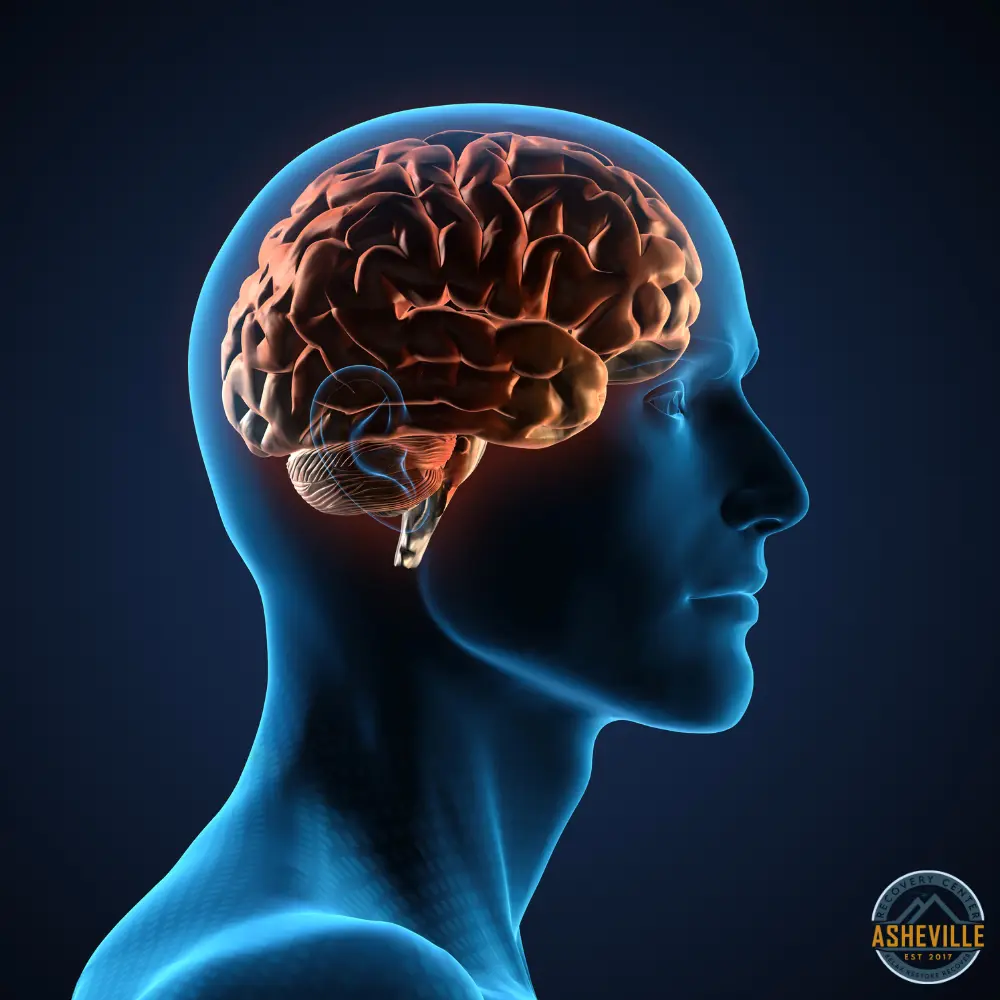Quitting alcohol or using drugs is one of the toughest challenges anyone can face. It’s not just about trying harder or wanting to stop—it’s a complicated struggle that affects your body, mind, and emotions. Many people in Asheville, North Carolina, are dealing with addiction, and while it’s tough to stop, there is hope. At Asheville Recovery Center, we understand how difficult it can be to break free from substance abuse, and we’re here to help. This article I will explain why it’s so hard to quit and how Asheville Recovery Center can support you on your path to recovery.

1. How Alcohol and Drugs Affect the Brain’s Reward System
Alcohol and drugs change how your brain works, especially its reward system. When you drink alcohol or use drugs, your brain releases a chemical called dopamine, which makes you feel goooooood. Over time, your brain gets used to this flood of dopamine and starts needing more alcohol or drugs just to feel normal this is called tolerance. This leads to cravings which are very intense urges or thoughts to drink or use—making it very hard to stop.
On top of that, the part of your brain responsible for self-control, called the prefrontal cortex, gets weaker. This makes it harder to resist the urge to drink or use, even when you know it’s hurting your health. Addiction rewires your brain in a way that makes quitting incredibly difficult.
At Asheville Recovery Center, we use treatments like cognitive behavioral therapy (CBT) to help your brain heal and create healthier habits. We teach you ways to cope with cravings and enjoy life without alcohol or drugs.

2. Withdrawal Symptoms: Why Quitting Feels So Bad
When someone who has been drinking or using drugs for a long time tries to stop, their body goes through withdrawals. This happens because the body has become dependent on the substance, and without it, you feel sick or uncomfortable. Withdrawal symptoms can include:
- Anxiety or nervousness
- Nausea and vomiting
- Shaking
- Sweating
- Trouble sleeping
- Increased blood pressure
- Short Temper
- Low Frustration Tolerance
- Lashing out at loved ones
- Diarrhea
Withdrawal can be very tough to handle overall it is dangerous, and in some cases—like with alcohol withdrawal or Benzodiazepines—it can even be deadly. That’s why going through detox without help can feel impossible. At Asheville Recovery Center, we set up medically supervised detoxification to ensure that you’re safe and as comfortable as possible while your body adjusts to your new life without alcohol or drugs.
3. Mental Health and Addiction: The Double Challenge
For many people, addiction goes hand-in-hand with mental health issues like anxiety, depression, or PTSD (Post Traumatic Stress Disorder). This is called dual diagnosis, and it makes quitting substances even harder. People often drink or use drugs to escape their emotional pain, but over time, the substances only make their mental health worse.
At Asheville Recovery Center, we know that treating the addiction alone isn’t enough. We also focus on helping you heal from mental health issues that may be driving your substance abuse. By addressing both problems at the same time, we give you a better chance at long-term recovery.
4. Facing Life Without Alcohol or Drugs
First off your life wont suck when you decide to get sober.. Alcohol or drug use often becomes a way to cope with life’s stress, trauma, or difficult emotions. When you stop using substances, you have to face these problems without the “numbing” effect that alcohol or drugs used to provide. This can feel overwhelming, especially without strong coping skills.
At Asheville Recovery Center, we help you build these coping skills. We offer both inpatient and outpatient treatment programs that provide tools to help you manage stress, anxiety, and emotional pain without turning to alcohol or drugs. We also offer support through relapse prevention strategies and support groups to help you stay on track in your recovery.
5. The Role of Family in Recovery
Addiction doesn’t just affect the person using alcohol or drugs—it also affects their loved ones. Many family members feel helpless or frustrated as they watch someone they care about struggle with addiction. They often don’t know how to help, and the stress can strain relationships.
At Asheville Recovery Center, we believe that family involvement is key to successful recovery. We offer family therapy sessions to help loved ones heal together and learn how to support each other during the recovery process. By helping to repair relationships, we make it easier for clients to stay committed to their recovery journey.
6. Social Pressure and Triggers in Asheville
Asheville is known for its craft beer culture, which can make it particularly challenging for someone with an alcohol addiction to stay sober. Social events often revolve around alcohol, and it’s easy to feel pressure to drink, especially when everyone around you is doing it. Even just being in familiar places like bars or breweries can trigger cravings.
At Asheville Recovery Center, we help you identify your triggers and develop strategies to manage them. Whether you’re dealing with pressure from friends, stress from work, or the temptation to visit old places where you used to drink or use drugs, we give you the tools to stay strong and stay sober.
7. Relapse: Why It Happens and How to Prevent It
Relapse, or going back to using alcohol or drugs after quitting, is sadly very common. But it doesn’t mean you’ve failed—it’s part of the recovery journey for many people. The National Institute on Drug Abuse (NIDA) explains that relapse is often a sign that you need more support or a different approach in your recovery plan.
At Asheville Recovery Center, we teach you how to prevent relapse by recognizing the early signs and knowing what to do when you feel tempted to drink or use again. Our relapse prevention techniques help you build a solid foundation for long-term sobriety. Even if you slip up, we’re here to help you get back on track.
8. Why Professional Help Is So Important
Addiction is a serious health condition that often requires professional treatment. Organizations like SAMHSA (Substance Abuse and Mental Health Services Administration) recommend getting help from trained professionals at treatment centers like Asheville Recovery Center. Trying to quit on your own is tough, and without the right support, many people relapse.
At Asheville Recovery Center, we offer several treatment options tailored to fit your unique needs. Whether you’re dealing with alcohol dependence, drug addiction, or both, we’ll be with you every step of the way. Our treatment program ensures you go through withdrawal safely, and our therapy programs help you build the skills you need to stay sober.
How Asheville Recovery Center Can Help
Quitting alcohol or drugs is tough, but with the right support, it’s possible. At Asheville Recovery Center, we take a holistic approach, we focus on healing the whole person—your body, mind, and emotions. We offer:
- Inpatient and outpatient treatment options
- Resources for Medically supervised detox
- Mental health support for those with dual diagnosis
- Family therapy to help heal relationships
- Relapse prevention strategies to help you stay sober
Our experienced team is here to guide you through every step of the recovery process. Whether you’re struggling with alcohol use disorder, drug addiction, or both, Asheville Recovery Center has the tools and resources to support your recovery.
Reach Out for Help Today
If you or someone you care about is struggling with addiction, don’t wait—reach out for help today. Asheville Recovery Center is here to provide the support and care you need to start living an alcohol-free life. You can call our helpline or visit our website to learn more about our programs.
Recovery isn’t easy, but with the right help, it’s possible. We’re here to help you build a healthier, happier life without alcohol or drugs.






